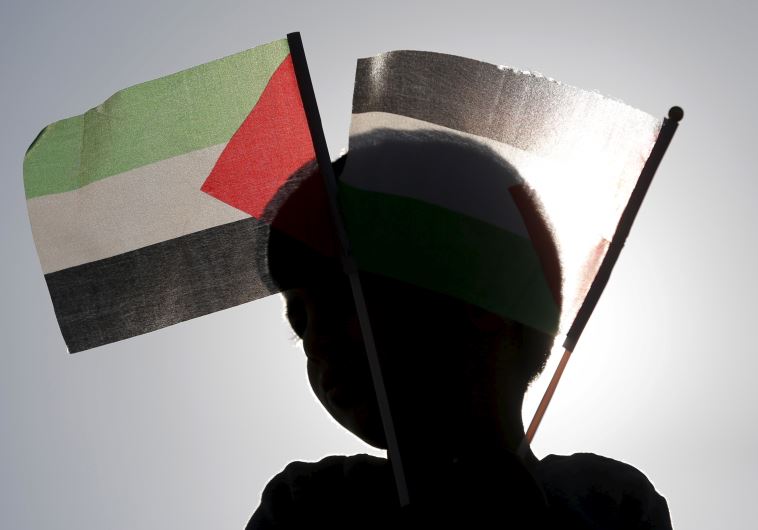Israeli Arabs warn gov't: Razing Beduin settlement is 'declaration of war'
Zahalka emphasized that a stand had to be made in Umm al-Hiran since if it falls quietly, the government would move on to destroy other villages.
 A Beduin boy holds Palestinian flags as he takes part in a rally marking Land Day in Umm el-HiranUpdated:
A Beduin boy holds Palestinian flags as he takes part in a rally marking Land Day in Umm el-HiranUpdated: